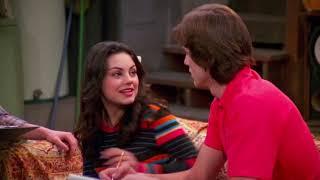Комментарии:

I love it when you get angry 😘 🤣
Ответить
😊Thanks for the explanation!
Ответить
CAPCUT is real😊
Ответить
Ah merci 😅
Ответить
So lovely and ranting.
Ответить
Good davinci stabilize video, Chloe:)))) Nice to see you:)))
Ответить
Thank you for bringing this up! I was just thinking about this other day and wondering how it became a default opinion if you’re on a Mac. It doesn’t even work well if you’re viewing the export on a MacBook or iMac 😂
Ответить
Frenchie angry lol, going full 2.4!!! :)
Ответить
I'm not feeling guilty at all, but surely angry too 😅
Ответить
THANK YOU.
Ответить
Thank god you told me. It's thanks to creators like you that we noobs learn stuff the rest of the world never mentions. Merci Beaucoup
Ответить
Cap Cut???
Ответить
Couldn't you set the gamma tag as rec.709-a while still grading as gamma 2.4 so that QuickTime interprets the footage correctly? That way it's still the standard gamma, just with specific metadata to fit QuickTime.
Ответить
TBH I think this topic has to be explained by Blackmagic Design directly. So many speculations and opinions out there. I’m not a professional colorist.
I always use 709-A, unless delivering to Cinema or TV. Never had an issue.
Checked the results and compared it on different platforms, displays, phones, webs and so on. If I export in 2.2 or 2.4. My clients ask me why the image looks like Log.
I’m sorry, I really get what you are saying. But as we live here and now, I don’t feel like not using Rec709-A in hopes for the future changes which never happened.
So right now, at least I know what is rec709-a and why I use it and when I definitely shouldn’t.
Thanks for everything you do to teach us !

Thank you for bringing this up!!!
Ответить
However, if you are coloring for social media and more people have iPhones, wouldn't 709-A make more sense?
Ответить
When using DaVinci YRGB Color Managed on a Mac, and you have “use Mac display profiles for viewers” enabled in prefs….
Three things happen..
Your Project output colorspace and gamma are sent to the display, and are interpreted by ColorSync to match your selected display profile in mac os.
When you render, the selected colorspace and gamma in project settings, are also what is encoded into the file. In the case of REC709-A (Gamma 1.961) … this is incorrect for any system apart from Macs.. ColorSync expects a gamma 1.961, but this is not the standard of gamma 2.4, and when you send the Correct gamma of 2.4 to the display, it gets incorrectly interpreted as 1.961, and creates the dreaded gamma shift.
The project settings for output colorspace and gamma are also creating the NCLC tags on render.
Now.. When using standard DaVinci YRGB (non managed), and you use CSTs to create your color management instead. (Also using “Use Mac Display profiles for viewers”)
Your Project output colorspace and gamma are sent to the display, and are interpreted by ColorSync to match your selected display profile in mac os.
However now the CSTs settings for output colorspace and gamma are what is actually encoded into the file
And the project settings for output colorspace and gamma are still also creating the NCLC tags on render.
So.. if you setup a proper Gamma 2.4 encode using the CSTs set to REC709 and Gamma 2.4 .. you can set the output colorspace in project settings to Colorspace = REC709 and Gamma = REC709-A, which takes your 2.4 CST output, and converts it to send 1.961 only to the display . This effectively creates a “Display LUT” and also conveniently tags your files as 1-1-1 which they should be.
You want to make sure you have set your Mac OS display profile to either the HDTV (BT.709-BT1886) ref mode- if you have an XDR display …. Or you can select one of the REC709 ITU-R BT.709 profiles .. or create a display profile using a proper calibration tool.
This will create a scenario where:
Quicktime actually (mostly) matches your Resolve viewer.. some piece wise sRGB nonsense in some cases.
Your renders will also look correct on non Mac computers like PCs. You are encoding a proper gamma of 2.4 but you are viewing the correction for Apples silly 1.961 gamma.
This cannot be as easily done under DaVinci YRGB color managed… (well technically it can by creating a viewer LUT, which I'm working on) only under standard DaVinci YRGB and using CSTs.
This is as close to a fix for the gamma shift that you’ll get.
Yes you should have a properly calibrated display connected via a deck link…but this can get you much closer.

Can someone simplify this for me, If I use Gamma 2.4 my exports when displayed on You Tube look lots lighter than on my monitor, If I use 709A I get a match between export and monitor.
Ответить
man your accent is so hot. I just want to bang you frenchie.
Ответить
Shaky image makes it sound more important and emotional 😂
Ответить
TELL EM
Ответить
If set on export, Rec.709-A seems just to write different color meta data. So in my tests, the pixel data of the rendered files were 100% identical and also displayed identical in VLC (and also matching the Reference display). But it seems that QuickTime player on macOS will display video files tagged with Resolve standard Rec.709 wrong, but almost correctly when setting meta data to Rec.709-A.
Ответить
I think we read the same post on Facebook yesterday. The Davinci Resolve group had a post explaining that most people use "iPhones anyway." I think it was a stupid post to generate hype and upset people. As a Mac/Davinci user, we should know Rec 709 2.4 is the standard delivery. And yes, some clients will ask for 2.2. But, 709-A is a dumb idea. Thank you for posting this. As always, love your channel!
Ответить



























